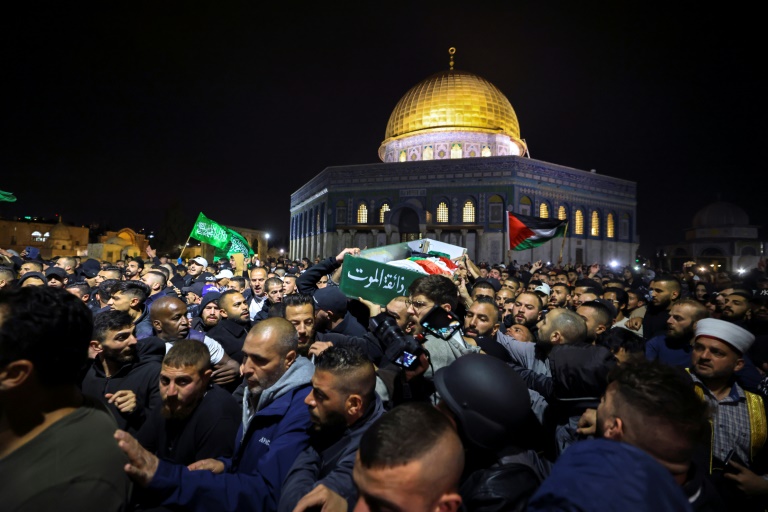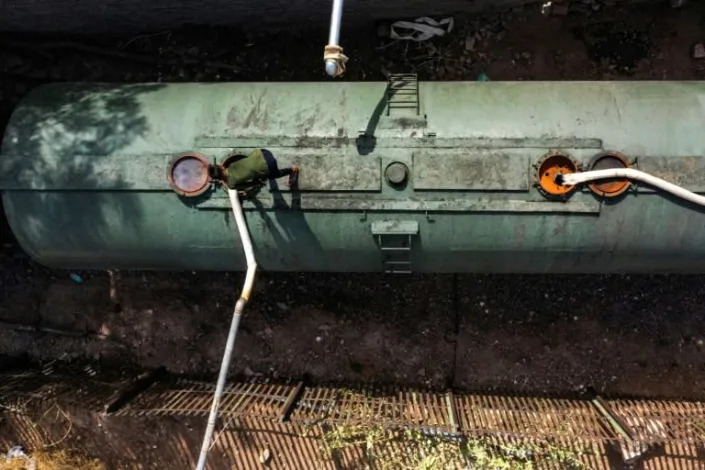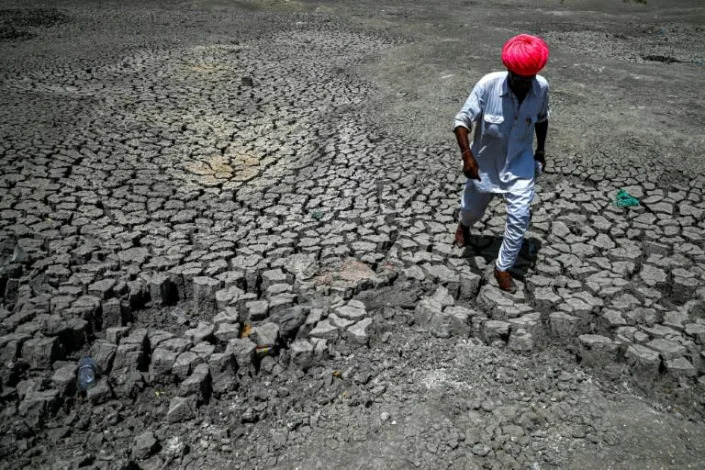Dozens hurt in clashes at Palestinian funeral in Jerusalem
Jerusalem – More than 70 Palestinians were wounded in overnight clashes with Israeli forces at a Jerusalem funeral, Palestinian medics said Tuesday, in unrest that police said included “violent riots” which threatened officers’ lives.
The unrest unfolded as Palestinians were burying Walid al-Sharif, 23, who died on Saturday of wounds suffered during clashes last month at Jerusalem’s flashpoint Al-Aqsa mosque compound.
The Palestinian Red Crescent said the injuries occurred “during clashes with occupation forces”, with Israeli police firing rubber bullets and stun grenades, in and around Israeli-annexed east Jerusalem’s Old City.
Sharif’s body was carried by mourners across the Al-Aqsa compound and brought through the Old City’s Herod Gate, before burial at a nearby cemetery.
Police said “violent disturbances occurred both during and after the funeral, including in the cemetery itself.” Six officers were injured.
Israeli “forces acted resolutely against hundreds of lawbreakers and violent rioters who… took violent actions against the forces endangering their lives,” a police statement said.
Palestinians were “hurling stones, bottles, bricks and other heavy objects, as well as firing fireworks at the forces,” it added.
The Palestinian Prisoner’s Club advocacy group said more than 50 people were arrested.
Police put the arrest figure at 15.
The clashes erupted days after a police raid on the funeral procession of veteran Al Jazeera reporter Shireen Abu Akleh, who was shot dead during an Israeli army raid in the West Bank.
Palestinians and the TV network said Israeli troops killed her, while Israel said Palestinian gunfire may have been to blame.
Anger over her death was compounded Friday when baton-wielding Israeli police in annexed east Jerusalem beat pallbearers carrying Abu Akleh’s coffin which was covered by a Palestinian flag.
Israeli police have said they will investigate the raid carried out by officers on the funeral procession as Abu Akleh’s body emerged from St. Joseph’s, a Catholic hospital in east Jerusalem.
The chaotic incident has been strongly condemned around the world, including by the United States, European Union, United Nations and the Vatican.






















